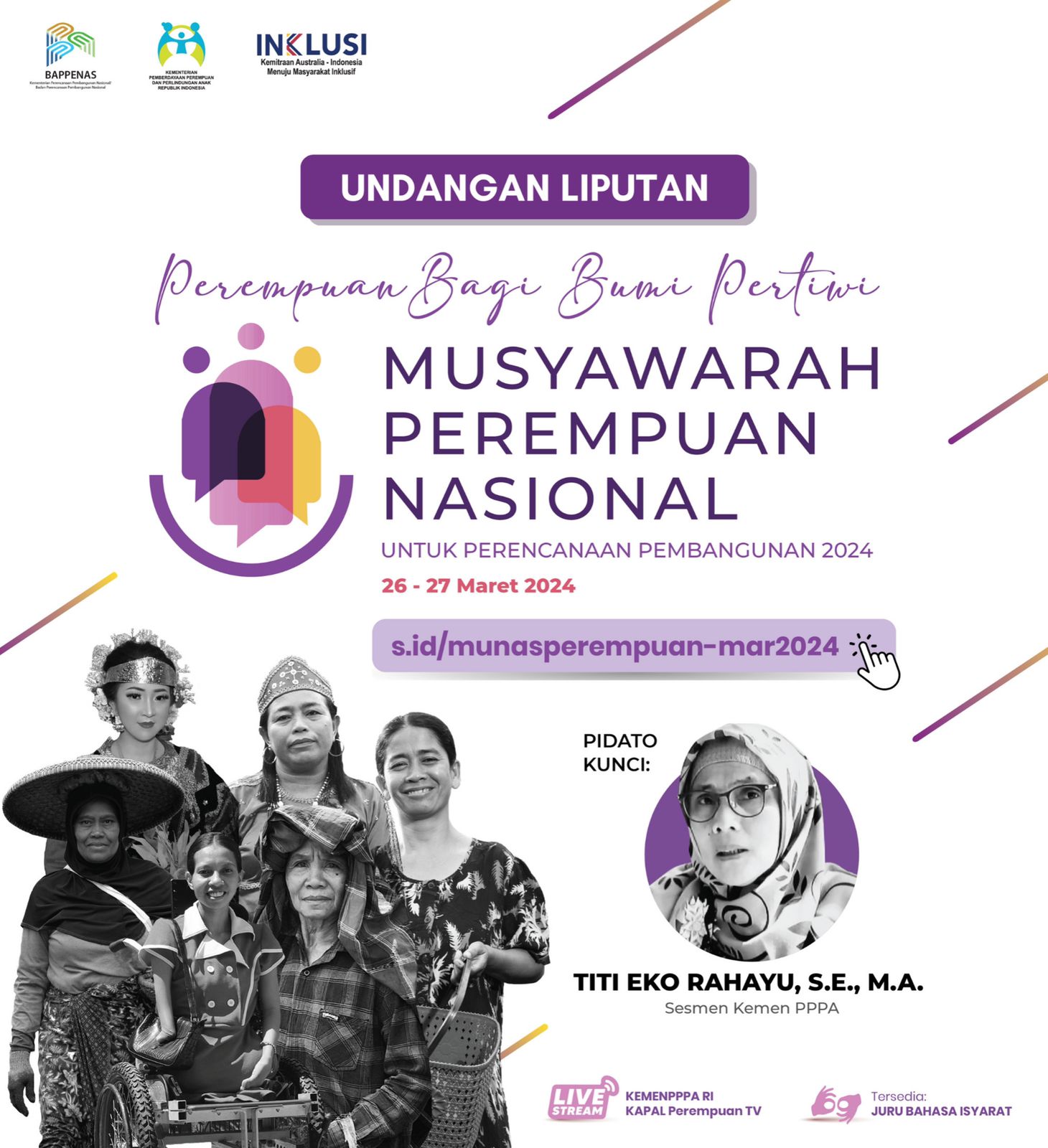The Women National Assembly proceeds on 26-27 March 2023, and embodies the active and meaningful participation of women with disability and of other marginal women in identifying and analyzing issues relevant for women with disability, and inclusive gender in the context of Mid-Term Development Planning. The Director of Kapal Perempuan, Misiyah also elaborates that It is equally critical for collaboration and drawing public support for strategic planning within the government ministries and offices, and provincial and district/city development planning.
The Women National Assembly is a critical and dynamic process, with its ups and downs, and embodies a collective inter-agency actions to support INKLUSI Project in conjunction with the Ministry for Women Empowerment and Child Protection and National Planning Board, and enjoys broad support.
Amongst the attendees are women with specific needs (women with disability) – JBI. There are at least 1,938 women of a variety of backgrounds who are eager to attend the Assembly in 2024. They come from 400 meeting nodes from 35 provinces and 163 districts and 477 villages.
Collective participation of meeting nodes includes those from remote areas who actively meet and collaborate with respective local governments. Ninety percent of participants are women, including 8.3% women with disability. Most women come from grassroots women organisations, marginal groups such as peasants, fishing women, disability organisations, coastal women, arts workers, academics, religious organisations, women as heads of household, child-journalist student forum, and teachers’ union.
The Assembly focuses on women and child issues of a variety of economic, geographic and demographic backgrounds. It also incorporates gender disability and inclusion perspective, and highlights the perspective of marginal women, women who are victims of violence, and women with disability who are heads of households, traditional communities, migrant workers, women and children who are facing legal cases, informal workers, workers with disability, and women and youth.
The Assembly follows a similar assembly in 2023, and results in agenda for women with disability and marginal groups, to be submitted as inputs and recommendation for 2025-2045 Mid-Term Development Plan. The Assembly schedules five stages, starting with local assembly, up to writing up inputs and recommendation, with the peak of the event on 24 April – preparing and disseminating policies in May 2024 and writing up actions and action plans.
Inputs from Women School in Gresik and Community Mental Health
The Women School in Gresik is one community providing inputs during the Women National Assembly. Its speaker provides the following inputs: 1. Improve first-line of health services and Auxiliary Community Health Centres; 2. Synchronise government policy ecosystem from local to national levels, through amongst others mobile ambulance in every village equipped with assistive devices; 3. Data collection; 4. Strengthening village cadre accompaniment through technical guidance; and 5. Mainstreaming training for pregnant women to help them move away from false perception/belief i.e. pregnant women not allowed to eat eggs (which would potentially result in stunting in children).
Other inputs come from Mother Hope Indonesia Community (MHI) which suggests that pregnant women should not just consult about their pregnancy, but should also have a psychological health examination which is relevant to identify risks of premature birth, or with low weight or babies with growth problem. There is a need for a collaboration with the Ministry for Women Empowerment and Child Protection and the Ministry of Health, and for training to health workers. Mainstreaming training is also important for pregnant women, particularly when they access health services so as to ensure that there is no stigma, especially when that happens to women with psycho-social disability who are pregnant or who are giving birth. (Ast)












